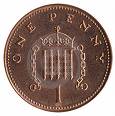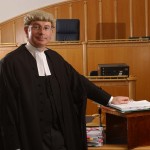Law Weblog
Guidance to jurors who are journalists
Saturday 28 November 2009 at 3:26 pm | In News | Post Comment*R v Cornwall [2009] CA
[Jury – guidance when journalist should declare conflict of interest]
D was convicted of a knife murder. He appealed on the grounds that on the jury during his trial was a journalist from “The Sun” who was outspoken and who held strong and well publicised views on issues such as law and order, and who had written about the defendant’s case after his conviction.
Held: It was inevitable that on juries there would be people with considerable background knowledge of the way in which the criminal justice system operated and doubtless with informed views, perhaps strong views, about such issues. However, the Court did make a suggestion as to good practice to be adopted by journalists or other writers if called upon to serve on a jury.
The right of peremptory challenge had long since been lost.
The practice of permitting a voir dire of all potential jurors in order to determine their views prior to selection for jury service does not exist.
In specific cases, judges might direct specific questions to potential jurors to avoid particular potential problems, but such a course was exceptional and case specific rather than general and unfocussed.
The appeal would be dismissed.
Per curiam: A journalist or other writer, if called to serve on a jury which will have to examine issues upon which he or she has expressed strong opinions about the state of the law (rather than detection, sentence or the system generally) will be well advised to alert the judge of that fact so that an informed decision can be taken about the juror’s ability faithfully to apply the judge’s directions as to the approach to be adopted to the case being tried. It is simply a question of pragmatic good sense and permits a sensible analysis at the earliest opportunity.
Statutory interpretation – police powers
Saturday 28 November 2009 at 9:04 am | In News | Post Comment*Semple v Luton and South Bedfordshire Magistrates’ Court [2009] QBD
[Statutory interpretation – absurd result if statute interpreted literally]
D punched a police constable in the face. The PC was assisting the landlord of a pub to eject D because he was drunk. D was convicted in the Magistrates’ Court and appealed by way of case stated. If the officer had been acting outside his duty when the D had punched him D would be not guilty of assaulting a police officer in the execution of his duty.
Held: A constable could use reasonable force when ejecting a customer when required to assist a licence-holder. Implicit in a licence-holder’s request for assistance in ejecting a customer from his premises was the request that the customer be prevented from re-entering those premises immediately.
Any other construction of s 143(4) of the 2003 Act would be absurd. A licence-holder had such powers in respect of a customer, so for a constable’s powers only to be those of arrest in those circumstances would make no sense.
The relevant legislative provision is Sec 143 of the Licensing Act 2003. The previous provision had been s 174(3) of the Licensing Act 1964. The 1964 Act provided that an officer ejecting a person from a pub was expressly empowered to use ‘such force as may be required for the purpose’ those words had been omitted from the 2003 Act.
Guilty
Bank charges – Supreme Court rules – customers lose
Wednesday 25 November 2009 at 6:45 pm | In News | Post Comment
The Justices held that charges for unauthorised overdrafts are part of the price or remuneration of the services provided under the current account contract. As a result, these charges are not subject to an assessment of fairness under Regulation 6(2) of the Unfair Contract Terms in Consumer Contracts Regulations 1999 (“UCTCCR”).
However, the Supreme Court has left the door open for the OFT to assess the fairness of the charges on other grounds, including Regulation 5(1) which will deem a term unfair if it creates a significant imbalance between the parties and is, therefore, contrary to the requirement of good faith. This means, that while today’s decision has clarified the position somewhat and narrowed the grounds of investigation challenge for the OFT, the issue is by no means settled.
Police are arresting people just to get their DNA
Wednesday 25 November 2009 at 2:01 am | In News | 1 Comment
Police are arresting people purely for the purpose of ensuring that their DNA is sampled and recorded on the police national database, a report by Government advisory body the Human Genetics Commission (HGC) has said.
The report recommends that police stop automatically taking DNA samples in England and Wales when someone is arrested and says that they should be given guidance on when and when not to take a DNA sample.
The report, Nothing to hide, nothing to fear?, says that it was told by a retired senior police officer that it was routine for police to make arrests whenever they could so that DNA samples can be collected.
“It is now the norm to arrest offenders for everything if there is a power to do so … it is apparently understood by serving police officers that one of the reasons, if not the reason, for the change in practice is so that the DNA of the offender can be obtained,” said that former officer’s evidence to the HGC. “It matters not, of course, whether the arrest leads to no action, a caution or a charge, because the DNA is kept on the database anyway.”
To counteract any actions by individual police officers who may be making arrests purely to collect DNA samples, the HGC said that guidance for officers should be published and their adherence to it monitored.
The report is here
Judiciary expenses claims ‘rise by £3 million in two years’
Wednesday 25 November 2009 at 2:00 am | In News | Post Comment
Expenses claims by judges and magistrates have increased by £3m in the last two years, new figures show.
The judiciary claimed £32 million this year on luxuries including first-class train tickets, air fares, hotel stays and eating out, figures obtained under the Freedom of Information Act disclose.
The sum also includes compensation paid to judges who buy homes closer to the courts where they work, and nightly allowances of £32 when they choose to stay at their second homes.
The data, obtained by The Independent, shows that the expenses bill for the 3,679 fee-paid and salaried judges for this year was £3,676,333 – a rise of more than £500,000 in the last two years.
The Indpendent here
New bar working practices
Saturday 21 November 2009 at 6:48 am | In News | Post Comment
The proposals would allow barristers to form partnerships and act in other capacities.
Barristers should be permitted to become managers of LDPs, regulated by the SRA without having to re-qualify as solicitors.
Barristers should be permitted to practice in more than one capacity at the same time e.g. as both managers of LDPs and as independent practitioners.
Barristers should be permitted in principle to form barrister-only partnerships (BoPs).
The cab-rank rule will apply to barrister only partnerships, as well as the self-employed Bar.
The code changes will have to be referred to the Ministry of Justice or the Legal Services Board for approval.
Barrister-only practices will be able to better share risk; for example Conditional Fee Agreements (CFAs – no win no fee) where as now individual practitioners feel unable to bear the risk of doing so.
In deciding to apply the cab-rank rule to advocates in barrister-only entities and to seek to apply that rule to all advocates, the Board wishes to preserve a unique attribute of the Bar, in the public interest, one the Lord Chief Justice has described as ‘essential to the administration of justice’.
BSB Press release here
“Statutory Charging” scheme arrangements – go nationwide
Tuesday 17 November 2009 at 7:38 am | In News | Post Comment
It will give all police officers instant access, via phone or secure digital service, to CPS prosecutors when seeking advice and authorisation.
Under the “Statutory Charging” scheme charging decisions in serious or complex cases remain the subject of face to face consultations between police and prosecutors, as they have since the scheme was introduced in 2006.
All summary only decisions will still be made by the police.
The scheme is popular with police officers because of the easier access to CPS lawyers it provides, will speed up the process of charging suspects and bringing them to court.
These moves follow last year’s Review of Policing report by Sir Ronnie Flanagan, the 2008 Her Majesty’s Inspectorate of Constabulary/Her Majesty’s Crown Prosecution Service Inspectorate Joint Thematic Review of the new Charging Arrangements and Jan Berry’s interim report on Reducing Bureaucracy in Policing published in February this year.
“Statutory Charging” is the name given to the scheme introduced by part 4 of the Criminal Justice Act 2003 (amending s 37 of the Police and Criminal Evidence Act 1984 and inserting s 37A into the Act) in response to recommendations made by Lord Justice Auld in his review of the criminal justice system.
CPS website here
Power to hold inquests in secret made law
Saturday 14 November 2009 at 7:32 am | In News | Post Comment
The provision means that investigations in to controversial deaths, such as that of Brazilian Jean Charles de Menezes or Government scientist David Kelly as well as military deaths could be held in secret.
The Act allows the Lord Chancellor to decide if an inquest is replaced with a judicial inquiry. The Lord Chief Justice will then decide which judge should lead such an inquiry. If he does not approve, no inquiry can be held.
Where an inquiry is held only some parts might be held in private. It will be for the judge chairing the inquiry to determine which aspects are held in private and which in public.
Female Lawyers to be Allowed to Practise in Saudi Arabia
Friday 13 November 2009 at 7:10 am | In News | Post Comment
Women lawyers may soon be allowed to represent female clients in courts in Saudi Arabia.
Proposed changes will allow women lawyers access to certain areas of courts in cases in which they are representing female clients.
Women will have a certain section within the courts that will be solely allocated for their cases and their representative female lawyers.
Report here, in Outlook India
Government will keep DNA profiles for six years, not 12
Friday 13 November 2009 at 2:02 am | In News | Post Comment
The European Court of Human Rights (ECHR) ruled last December that the UK Government’s “blanket and indiscriminate” retention of DNA information was not fair and was a “disproportionate interference with the applicants’ right to respect for private life”, as guaranteed by the European Convention on Human Rights.
Earlier this year the Home Office said it planned to retain DNA profiles on innocent people for a maximum period of 12 years.
The plans do not extend to terrorist offences
The UK maintains the largest national DNA database in the world. The Government says it plays an essential role in fighting crime and providing justice for victims. Between April 1998 and September 2009 there were more than 410,589 crimes with DNA matches, providing the police with a lead on the possible identity of the offender.
In addition to DNA profiles on the database, all DNA samples, such as blood, urine or mouth swabs used to create the DNA profile will be destroyed. The Government also plans to give police new powers to take DNA samples from anyone convicted abroad, or convicted before the creation of the DNA database in 1995.
More details here
Powered by WordPress with Pool theme design by Borja Fernandez.
Entries and comments feeds.
Valid XHTML and CSS. ^Top^